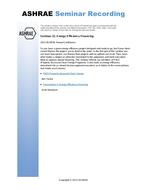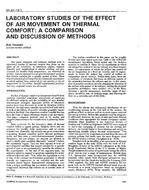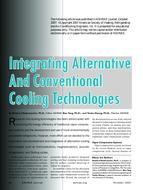CFD is widely used to determine the steady-state cooling performance of existing or planned data centers. However, in the absence of a compact transient server model, comprehensive transient modeling which includes the effect of server thermal mass requires prohibitively large, detailed models. Consequently, transient scenarios such as that following a loss of cooling are typically modeled in CFD ignoring thermal masseffects of servers (and are thus overly conservative) or are modeled based on a well-mixed idealization, which provides no local information. Further, the techniques used to date for capturing server thermal mass effects in well-mixed models are limited and have not been validated against experimental data.
We propose a compact transient server model that handles all practical data center use cases and is simple to incorporate into CFD, well-mixed, and other numerical models. This black-box server model predicts exhaust temperature in response to time-varying ambient temperature and/or internal heating and can also be used to model entire racks. The model introduces the concept of “server thermal effectiveness” and an additional parameter which takes into account the relative position of server internal heat sources and thermal mass. A method is presented for experimentally measuring the transient server characteristics and preliminary results for sample servers are reported. An example highlights the use of the compact model and its benefits relative to more-approximate techniques
Product Details
- Published:
- 2013
- Number of Pages:
- 13
- File Size:
- 1 file , 2.2 MB
- Product Code(s):
- D-DE-13-032
- Note:
- This product is unavailable in Russia, Belarus


